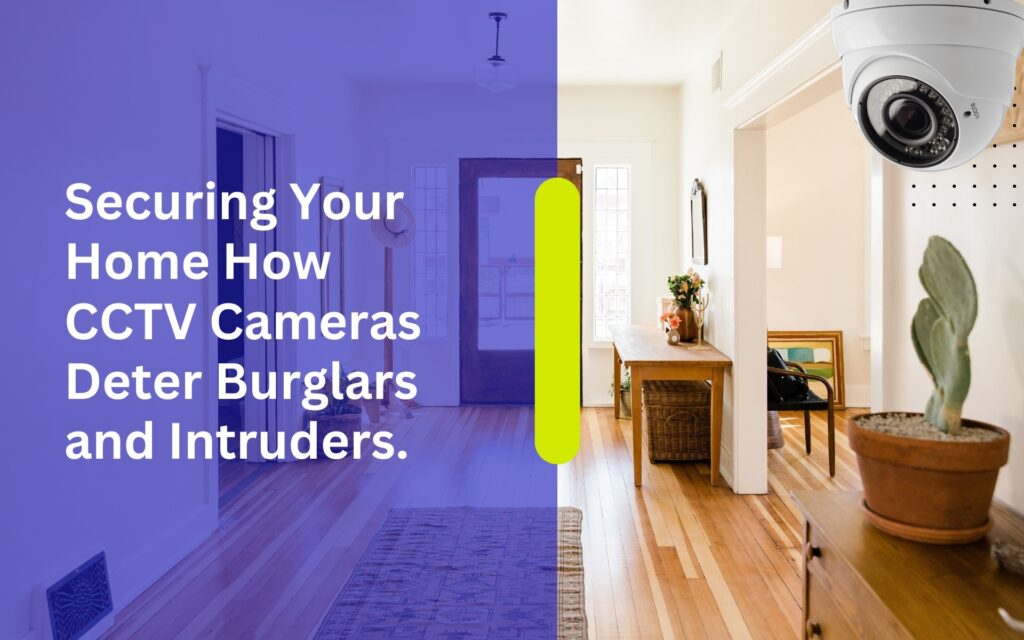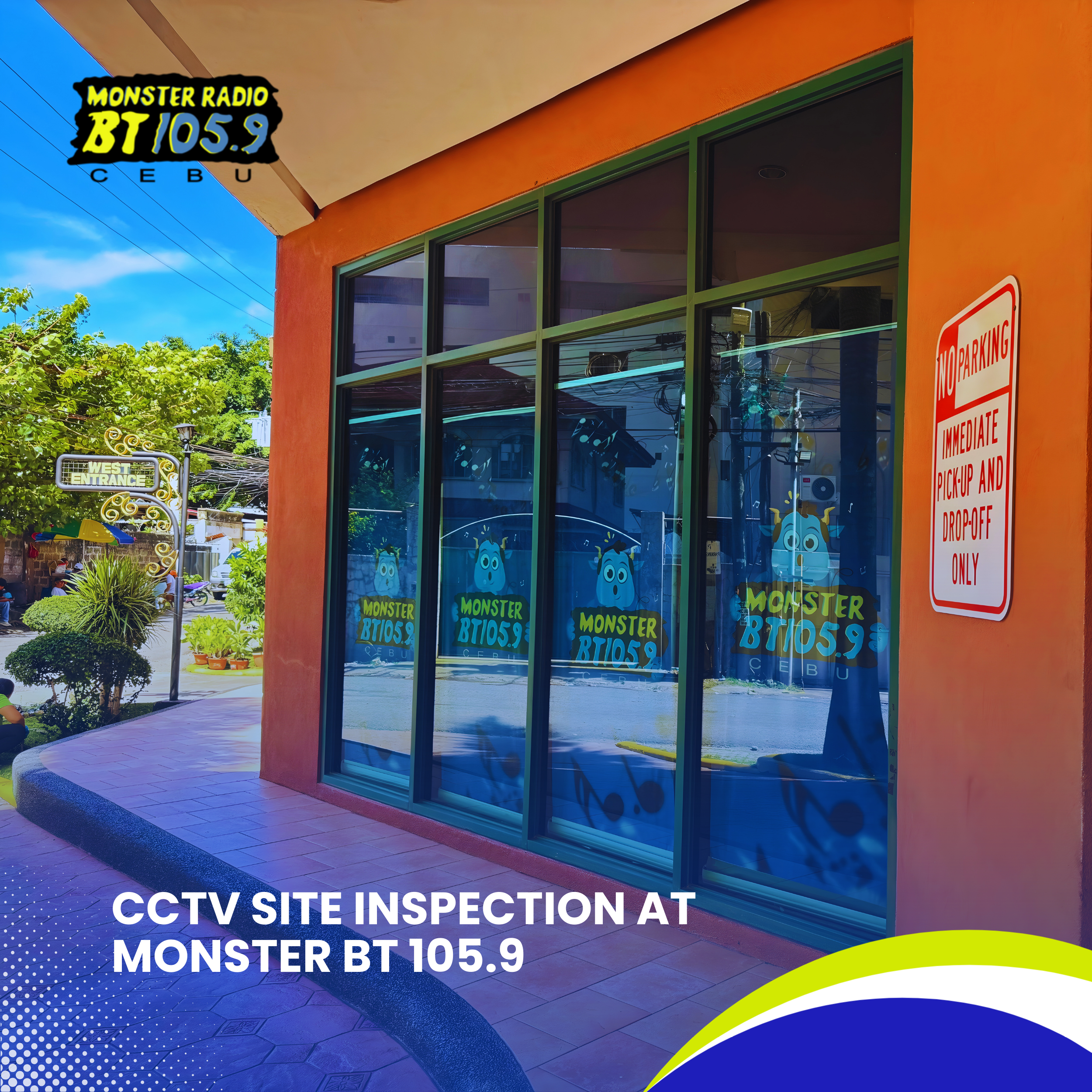Biometric System Site Inspection at IT Managers Inc. Introduction: Biometric System Site Inspection at IT Managers Inc. A biometric system site inspection was conducted by the InstallersPH IT Solutions team for IT …
Securing Your Home How CCTV Cameras Deter Burglars and Intruders.

Introduction
In an age where security concerns are paramount, safeguarding our homes has become a top priority for homeowners worldwide. With the advancement of technology, homeowners now have access to sophisticated surveillance systems, such as Closed-Circuit Television (CCTV) cameras, to enhance the security of their properties. In this article, we delve into the effectiveness of CCTV cameras in deterring burglars and intruders, providing insights into their functionality, benefits, and best practices for implementation.
Understanding CCTV Cameras
CCTV cameras are surveillance systems comprising cameras, monitors, and recording devices that transmit signals to a specific set of monitors or screens. Unlike traditional broadcast television, CCTV systems are closed-circuit, meaning the signals are not openly transmitted but are instead monitored for security and surveillance purposes. These cameras are strategically placed in and around residential or commercial properties to monitor activities and deter potential threats.
How CCTV Cameras Deter Burglars and Intruders
1. Visual Deterrent
The presence of CCTV cameras acts as a powerful visual deterrent for burglars and intruders. Knowing they are being monitored significantly reduces the likelihood of unauthorized individuals attempting to break into a property. Research has shown that properties equipped with visible CCTV cameras are less likely to be targeted by criminals, as the risk of detection and apprehension is substantially higher.
2. Evidence Collection
In the unfortunate event of a burglary or break-in, CCTV cameras serve as invaluable tools for collecting evidence. High-resolution video footage captured by these cameras can provide law enforcement authorities with crucial information, such as the intruders’ physical appearance, mode of entry, and the timing of the incident. This evidence greatly enhances the chances of identifying and apprehending the perpetrators, leading to successful prosecution and recovery of stolen property.
3. Remote Monitoring
Modern CCTV systems offer remote monitoring capabilities, allowing homeowners to keep an eye on their property from anywhere in the world. By accessing live video feeds via smartphones or computers, homeowners can monitor their premises in real-time and receive instant alerts in case of suspicious activity. This remote monitoring feature not only provides peace of mind but also enables prompt action in the event of a security breach, such as alerting authorities or activating other security measures.
4. Enhanced Surveillance
CCTV cameras provide comprehensive surveillance coverage, capturing footage both indoors and outdoors. By strategically placing cameras at key entry points, blind spots, and vulnerable areas of the property, homeowners can ensure maximum coverage and deterrence against potential threats. Additionally, infrared and night vision capabilities enable CCTV cameras to monitor property effectively even in low-light conditions, ensuring round-the-clock surveillance.
Benefits of Installing CCTV Cameras
1. Crime Prevention
The primary benefit of installing CCTV cameras is the prevention of crime. Studies have shown that visible surveillance cameras act as a significant deterrent to criminal activity, reducing the risk of burglaries, vandalism, and other security breaches. By creating a perception of heightened security, CCTV cameras discourage potential intruders from targeting the property, thus enhancing overall safety and security.
2. Remote Access and Monitoring
Modern CCTV systems offer remote access and monitoring capabilities, allowing homeowners to monitor their property from anywhere with an internet connection. This feature enables homeowners to check live video feeds, review recorded footage, and receive real-time alerts on their smartphones or computers, providing peace of mind and ensuring proactive security management.
3. Evidence Collection and Investigation
In the event of a security breach or criminal activity, CCTV cameras serve as invaluable tools for collecting evidence and aiding in investigations. High-definition video footage captured by these cameras can provide law enforcement authorities with crucial information, such as the identification of suspects, their actions, and the sequence of events leading up to the incident. This evidence not only increases the likelihood of apprehending the perpetrators but also strengthens the case for prosecution.
4. Insurance Benefits
Installing CCTV cameras can lead to potential insurance benefits for homeowners. Many insurance companies offer discounts or reduced premiums for properties equipped with surveillance systems, as they are deemed less risky and less likely to experience security-related claims. By investing in CCTV cameras, homeowners can not only enhance the security of their property but also save money on insurance premiums in the long run.
Best Practices for Implementing CCTV Cameras
1. Conduct a Security Assessment
Before installing CCTV cameras, conduct a comprehensive security assessment of your property to identify potential vulnerabilities and determine the optimal placement of cameras. Assess key entry points, blind spots, and areas prone to security breaches to ensure maximum coverage and effectiveness.
2. Choose the Right Cameras
Select CCTV cameras that are suitable for your specific security needs and requirements. Consider factors such as resolution, field of view, night vision capabilities, and weather resistance when choosing cameras for indoor and outdoor surveillance. Opt for high-quality cameras with advanced features to ensure clear and reliable video footage.
3. Install Cameras Strategically
Install CCTV cameras strategically at key locations around your property to maximize coverage and deterrence. Place cameras at entry points such as doors, windows, and gates, as well as in areas with valuable assets or high foot traffic. Ensure that cameras are mounted securely and positioned at optimal angles to capture clear video footage.
4. Maintain and Test Your System Regularly
Regular maintenance and testing are essential to ensure the optimal performance of your CCTV system. Inspect cameras, cables, and recording devices for any signs of damage or malfunction, and address any issues promptly. Test your system regularly to verify camera functionality, recording quality, and remote access capabilities.
Conclusion
Securing your home with CCTV cameras is an effective way to deter burglars and intruders, enhance overall safety, and provide peace of mind for homeowners. By leveraging the visual deterrent, evidence collection, and remote monitoring capabilities of CCTV systems, homeowners can significantly reduce the risk of security breaches and protect their property, assets, and loved ones. By following best practices for implementation and maintenance, homeowners can maximize the effectiveness of their CCTV cameras and safeguard their homes against potential threats. Investing in a reliable CCTV system is not just a precautionary measure; it’s a proactive step towards creating a safer and more secure living environment.
Related Articles
CCTV Site Inspection at Monster BT 105.9. Introduction. On February 16, 2026 (Monday), the technical team from InstallersPH IT Solutions conducted a scheduled CCTV site inspection at Monster BT 105.9, situated in …
No CCTV, No Permit: What Businesses in Cebu Need to Know. Introduction. In 2026, business owners in Cebu are facing a growing and very important requirement: “No CCTV, No Permit.” This means …



